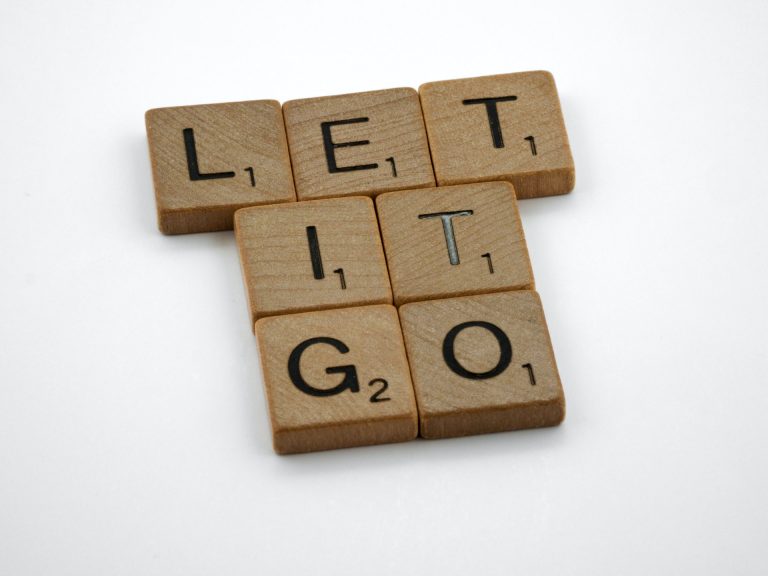It’s no secret that nature, which includes our minds and bodies, follows well-defined patterns. All we have to do is go with the natural flow that already exists inside us. In order to let go of unhealthy habits we need to understand the nature of the brain’s neural pathways. Then we can begin to let go of habitual propensities that no longer serve us.
Fractal nature of our brains
Scientists claim that the brain is fractal not just in structure but also in a process that functions based on fractal geometry. Everyone is unique and sees the world differently.
Actions and thoughts repeated over and over again create complex patterns and are material in nature.
Snowflakes, trees, and ocean waves are all examples of fractals, repeating themselves endlessly across various scales (sizes) of the same object. Similarly, our nervous system interacts with the rest of our body via neural pathways, which in turn controls our bodies in line with our goals, desires, and habits on a consistent and recurrent basis. Certain repeated acts create the routes that we have grown used to, becoming more and more fixed with time, resulting in behavioral patterns.

Repetition is key
When we educate our brains to build a new route by doing various tasks, it is necessary to repeat the act many times in order for the brain to classify it as a new route. So while a neural pathway in the brain is formed when comfort foods are consumed on a regular basis, new synaptic connections may be formed by developing new habits. Because the brain is constantly evolving, it can establish new neural pathways and habits. Stroke victims, for instance, can regain normal cognitive function with training.
Success
You are now signed up for our newsletter
Success
Check your email to complete sign up
Studies have determined that it takes twenty-one days to establish or break a habit. This habit development is reliant on our ability to train our brain to develop new neural connections. Complex actions such as driving a vehicle are examples of novel neural pathways that have developed in the brain.
Anybody can cultivate new behaviors and enhance their quality of life by following the way of nature. With enough resolve, you can rewire your neural connections and reroute your brain.
Here are some simple steps to follow:
Keep a close eye on your actions at all times. Rhythmic and tranquil patterns may be seen in nature, and similar qualities can also be found in you. By acknowledging that the poor habits are neither you nor your fault, but rather something you acquired along the way that has resulted in an undesirable behavior pattern, you will be able to liberate yourself from them progressively.
- Say “Thank You”
A negative attitude will set you back. Treat each obstacle as an opportunity to improve, and greet it with gratitude. Set a goal for yourself to express gratitude to five individuals for something they have done or for a quality they possess. Make showing gratitude a habit and you will increase your overall sense of well-being.
- Love of life
Passion is the energy, the power, or the strength that propels you in the pursuit of your goal. An idea is neutral if it is not accompanied by passion; it is not enough to just repeat positive affirmations. Ask yourself, what feelings do you associate with achieving your objective? What significance does your aim have for you? Consider how you’re feeling while you concentrate on your purpose.
- Exercise
One of the most effective methods to reroute your brain, combat depression, and even reduce your risk for Alzheimer’s and other neurodegenerative illnesses is to engage in regular physical activity. Numerous studies have shown that exercise may help to stimulate neuron development in the brain by increasing the levels of the neurotrophic factor (BDNF) in the brain. Biochemically defined neurotrophic factor (BDNF) is a protein that promotes the development of new neurons and connections (synapses). Try to combine your exercise routine with a stimulating setting (such as hiking in nature), which will aid in the survival and integration of these newly formed neurons.
- Non-action
We know that dispositionally happy people are willing and able to postpone satisfaction. If they desire something, they may weigh the costs and benefits of getting it instantly. “I really want something, but on further consideration, I should wait,” is a valuable mindset to have. It demonstrates will power, and self restraint.
Consider this scenario: You’ve overspent., yet you see things and you want them immediately. Commit to going to the mall five times without buying anything until the fifth visit. Make yourself browse around, but don’t buy anything until your last visit. With experience, you will get closer to the high end of the delayed gratification continuum, toward where dispositionally happy people naturally gravitate.
- Create a mental picture of what you want
The brain doesn’t distinguish between what is real and what is imagined. Involving yourself in the mental rehearsal of new habits improves your capacity to implement them in your daily life. Find images that are consistent with your objective and spend time picturing them every day to achieve your objective.
- Fellowship
Choose individuals outside of your family with whom you feel comfortable and with whom you can express yourself freely and with dignity, who will respect your privacy. Being alone for an extended period may drag you down and limit your perspective.
No man is an island
Entire of iteslf;
Every man is a piece of the continent
A part of the main
Jonn Donne
- Meditation or Prayer
People who practice regular meditation have a larger hippocampus, an area of the brain that regulates memory, learning, and emotion, and can generate new neurons throughout our lives—this process is known as neurogenesis or neural regeneration. Any amount of time spent on stress reduction and relaxation will be beneficial to your hippocampus’s functioning.

- Take actions that are consistent with your goal.
Your actions must be consistent with what you claim to desire and vice versa. It is not possible to think and feel one way while acting in another. In other words, if you consume junk food while repeating affirmations about being healthy and active, you will not be able to rewire your brain. Additionally, you will not rewire your brain if you go to the gym but whine about how much you despise working out. Determine what activities are consistent with your ideas and what you enjoy.
- The power of repetition
Change necessitates the development of a new habit. After all, it is based on the adage, “use it or lose it.” Consciously practice thinking, experiencing, imaging, and behaving in accordance with your intended purpose. The unconscious habit of repeating the past will be broken, and you will be given the opportunity to rewire your brain while you are still in the present.
Daniel Pinchbeck wrote: “Modern humans became fixated on a collective hallucination of linear time ignoring the fractal spirals of the surrounding universe.”













